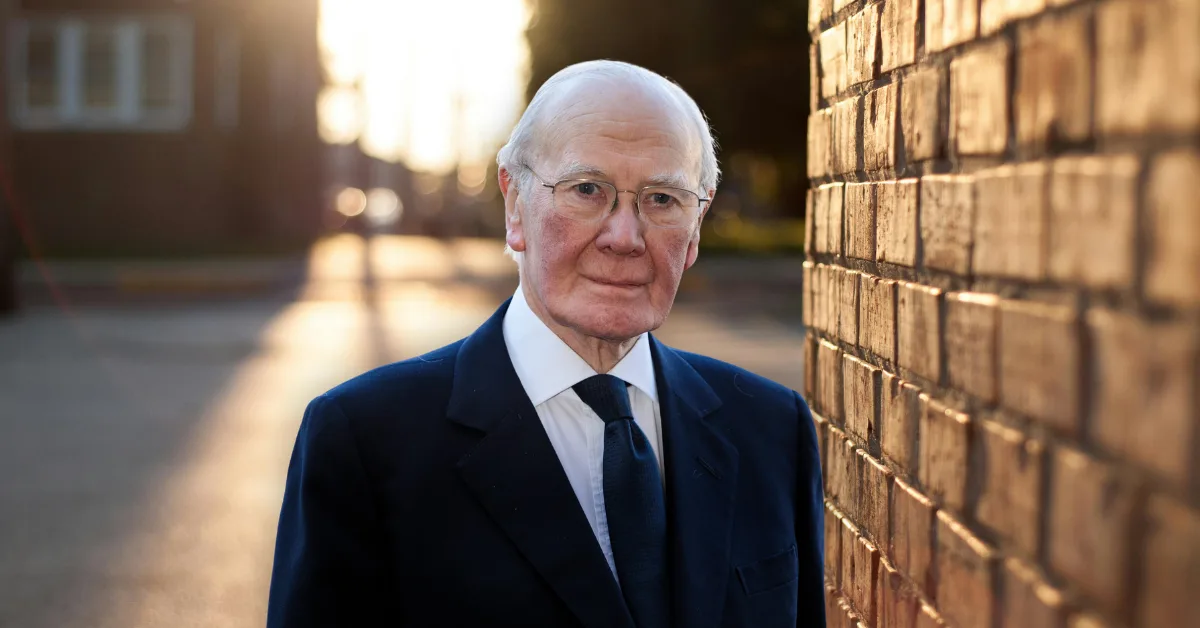Ming Campbell Death: Legacy of His Olympic Career Versus His Political Career

Walter Menzies “Ming” Campbell, a figure of remarkable versatility, passed away in September 2025 at the age of 84. His life was distinguished by two profoundly different yet equally impactful careers: one as an Olympic-level sprinter, and the other as a prominent British politician.
I find myself drawn to dissecting the intricate threads of his journey, analyzing how these two seemingly disparate paths shaped his legacy. Campbell’s narrative offers a compelling case study in public service and personal excellence, prompting us to consider the enduring marks left by both athletic prowess and political conviction.
| Personal Detail | Information |
|---|---|
| Full Name | Walter Menzies Campbell, Baron Campbell of Pittenweem |
| Known As | Ming Campbell |
| Born | 22 May 1941, Glasgow, Scotland |
| Died | September 2025 (aged 84), London, England |
| Spouse | Elspeth Urquhart (married 1970, died June 2023) |
| Education | University of Glasgow, Stanford University |
| Political Party | Liberal (pre-1988), Liberal Democrats (1988–present) |
| Key Political Roles | MP for North East Fife (1987-2015), Leader of the Liberal Democrats (2006-2007), Deputy Leader (2003-2006), Foreign Affairs Spokesperson (1992-2006) |
| Athletic Achievements | 1964 Tokyo Olympian (200m, 4x100m relay), British 100m record holder (1967-1974), Captain of Great Britain athletics team (1965-1966) |
The Swift Ascent: Campbell’s Olympic Career
Menzies Campbell’s athletic career was marked by speed and dedication, carving out a reputation as a formidable sprinter. As a young man, he was not merely an athlete but one who pushed the boundaries of British sprinting. In 1961, he broke Olympic gold medalist Wyndham Halswelle’s 53-year-old Scottish 300 yards record.
His prowess on the track culminated in his participation at the 1964 Olympic Games in Tokyo, where he represented Great Britain in both the 200 metres and the 4×100 metres relay. While he reached the quarter-finals in the 200m, the experience of competing on such an international stage undoubtedly left an indelible mark.
Beyond the Olympics, Campbell’s athletic achievements continued. He captained the Scotland team at the 1966 British Empire and Commonwealth Games in Kingston, Jamaica, and notably held the British 100 metres record from 1967 to 1974.
During this period, he was famously known as “the fastest white man on the planet,” having run the 100m in 10.2 seconds twice in 1967, even beating an aspiring O. J. Simpson in one instance.
His athletic career, though eventually giving way to his legal and political ambitions, was not a brief diversion but a significant chapter that demonstrated his capacity for intense focus, discipline, and competitive drive. He was also a member of the London 2012 Olympic Board, showing his continued enthusiasm for sport.
From Track to Westminster: The Genesis of a Political Force
The transition from the athletic track to the political arena might seem unconventional, yet for Ming Campbell, it was a logical evolution of his desire to serve and compete. After being called to the Scottish Bar in 1968 and becoming a Queen’s Counsel in 1982, he entered the demanding world of politics. His political journey began with an association with the Scottish Liberal Party, which he had been involved with since his university days. He became Chairman of the Scottish Liberal Party in 1975.
Campbell’s entry into the House of Commons was a testament to his perseverance. After several attempts, he was elected as Member of Parliament (MP) for North East Fife in 1987, a seat he would hold for nearly three decades until his retirement in 2015. This marked the formal commencement of a career that would see him rise to the leadership of a national political party. His early parliamentary roles often focused on defence and foreign affairs, areas where he would become a respected and authoritative voice.
The Statesman: Campbell’s Political Career and Leadership
Menzies Campbell’s political career was defined by his measured demeanor, intellectual rigor, and a strong moral compass. He served as the Liberal Democrat chief spokesperson for foreign affairs and defence for many years, a role that brought him significant prominence, especially in the lead-up to the 2003 Iraq War.
He was a vocal and principled opponent of the war, advocating for the publication of the Attorney General’s advice on its legality and criticizing the government’s support for President George W. Bush. This stance cemented his reputation as a politician of conviction, willing to speak out against prevailing sentiment when he believed it was right.
In 2003, Campbell became Deputy Leader of the Liberal Democrats. Following Charles Kennedy’s resignation, he assumed the interim leadership on January 7, 2006, and subsequently won the leadership contest, becoming the official leader of the Liberal Democrats in March 2006. During his tenure, he promoted younger MPs to his frontbench team, including Nick Clegg and Jo Swinson.
While his leadership was relatively brief, lasting until October 2007, he navigated a challenging period for the party. His resignation was influenced by persistent questions about his age, which, despite his experience and gravitas, became an undue focus. Even in stepping down, he demonstrated grace and a commitment to the party’s progress.
After stepping down as leader, Campbell continued to serve as an MP and was appointed a life peer in 2015, becoming Baron Campbell of Pittenweem, serving in the House of Lords until his death. He also served as Chancellor of the University of St Andrews from 2006 until his passing. Across his political career, he was recognized with numerous honors, including a CBE in 1987, a knighthood in 2004 for services to Parliament, and appointment as a Member of the Order of the Companions of Honour (CH) in 2013 for public and political service.
A Dual Legacy: Olympic Sprinter Versus Political Leader
The legacy of Ming Campbell is uniquely shaped by the confluence of his two distinct careers. On one hand, his Olympic career presents a legacy of raw talent, physical discipline, and national representation. He was a symbol of speed and athletic excellence, breaking records and competing on the world stage. This aspect of his life speaks to individual achievement, the pursuit of peak physical performance, and the inspiring power of sport.
On the other hand, his political career offers a legacy of intellectual fortitude, principled leadership, and public service. As a politician, he tackled complex international issues, challenged government policies, and led a national party through a period of transition. His stance on the Iraq War, for instance, showcased moral courage and a commitment to considered foreign policy. This aspect of his life underscores his contribution to democratic discourse, governance, and shaping public opinion.
Comparing these two legacies, I observe that his Olympic achievements, while spectacular, were largely a testament to personal athletic mastery. They provided him with a public profile and a reputation for determination. His political career, however, extended this determination into the realm of collective action and societal impact.
It was here that his intellectual capacities, his legal training, and his ethical framework truly came to the fore. While “the fastest white man on the planet” is a captivating descriptor, “a principled voice opposing war” or “a dedicated public servant” speaks to a different, perhaps more profound, form of legacy.
It is evident that his early athletic career instilled in him a competitive spirit and resilience that likely served him well in the often-brutal world of politics. Yet, the depth and breadth of his influence as a politician, particularly in foreign affairs and as a party leader, arguably yielded a more enduring and complex legacy in the fabric of British society and political thought.
As his grandson Gregor Grant-Suttie noted, “Ming achieved a lot through his life, across sport, law and politics. But the myriad of accolades and awards he collected in his professional life paled in comparison to his achievements as a husband, father figure, grandfather, and friend.” This sentiment reminds us that while public careers define a persona, the personal impact often resonates most deeply.
Conclusion
Lord Menzies Campbell’s passing in September 2025 marked the end of a truly extraordinary life, one that seamlessly wove together the intense physical demands of elite athletics with the rigorous intellectual and moral challenges of high-level politics. His journey from Olympic sprinter to a respected Liberal Democrat leader offers a unique perspective on the nature of ambition, service, and legacy.
While his speed on the track earned him the moniker “the fastest white man on the planet” and a place in Olympic history, it was his steadfast principles, his articulate opposition to the Iraq War, and his leadership within the Liberal Democrats that shaped his most profound and enduring public contribution.
He leaves behind a dual legacy, demonstrating that excellence, whether in sport or statesmanship, is ultimately forged through dedication, integrity, and a profound commitment to one’s chosen path. He was a figure of quiet authority whose impact will be remembered across both the athletic and political landscapes of the UK.
Frequently Asked Questions
Ming Campbell died in September 2025 at the age of 84.
Ming Campbell competed for Great Britain in the 200 metres and 4×100 metres relay at the 1964 Tokyo Olympic Games. He also held the British 100 metres record from 1967 to 1974 and captained the Great Britain athletics team in 1965 and 1966.
Ming Campbell served as the Member of Parliament for North East Fife from 1987 to 2015. He was the Liberal Democrats’ spokesperson for foreign affairs, Deputy Leader of the party from 2003 to 2006, and Leader of the Liberal Democrats from March 2006 to October 2007.
As the Liberal Democrat foreign affairs spokesperson, Ming Campbell was a prominent and principled opponent of the 2003 Iraq War, arguing against military action and criticizing the British government’s support for President George W. Bush.












